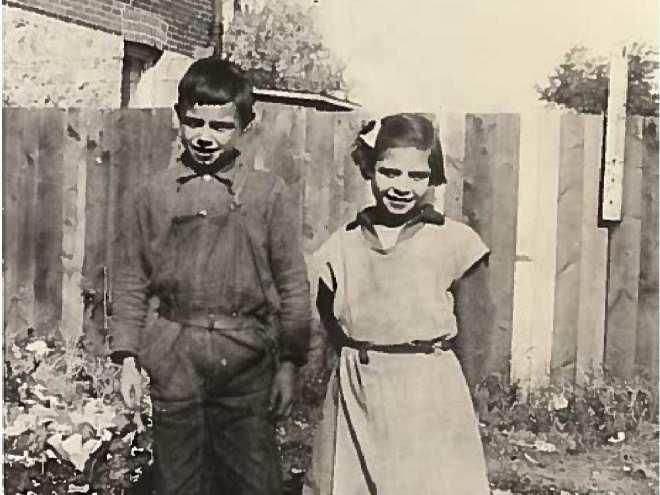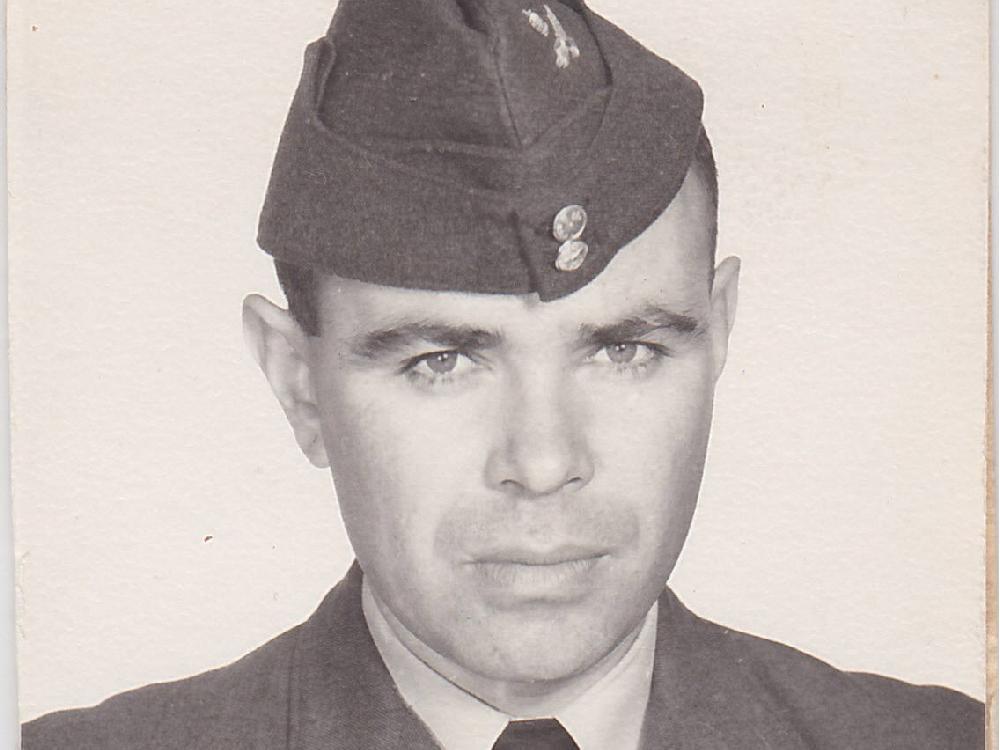|
'The most abject human misery': Memories of a residential school survivor
By Russ Moses
The Indian Residential Schools experience looms large in the history of my family, just as it does for so many Native families across the country. Written from the vantage point of December, 1965 when he was 33 years old, the following excerpts from his memoir recount my late father Russ Moses’ experiences at the Mohawk Institute Indian Residential School (“the Mush Hole”) in Brantford, Ontario which he attended from 1942 to 1947. Russ and his older brother Elliott and younger sister Thelma had the misfortune of attending the Mohawk at the height of the Second World War, when any pretence toward providing education or training had largely been abandoned. The children were there to provide the forced agricultural labour necessary to keep the large farming operation going, as a contribution to the industrial-scale food production effort on the home front. The Mohawk sat on 350 acres of prime southern Ontario farmland with livestock and numerous crops and orchards under cultivation. The children themselves derived no benefit from this, and were reduced to begging on the streets of Brantford to sustain themselves. Russ’s memoir remains of historical interest, predating as it does our current era of retrospection and reflection concerning the schools. It is presented here in recognition of the upcoming closing national event of the Indian Residential Schools Truth and Reconciliation Commission to be held in Ottawa from May 31 to June 3. Russ refused to be defined by his residential school experiences. He was a loving husband, father and grandfather, as well as a proud Korean War veteran of the Royal Canadian Navy and later the RCAF, and finally a federal public servant specializing in employment equity matters. He died in Ottawa on May 22, 2013 and is buried at his home community of the Six Nations of the Grand River Territory. – John Moses The policy of the Mohawk Institute was that both girls and boys would attend school for half days and work the other half. This was Monday to Friday inclusive. No school on Saturday but generally we worked. The normal work method was that the children under Grade V level worked in the market garden in which every type of vegetable was grown and in the main sold – the only vegetables which were stored for our use were potatoes, beans, turnips of the animal fodder variety. The work was supervised by white people who were employed by the Institute and beatings were administered at the slightest pretext. We were not treated as human beings – we were the Indian who had to become shining examples of Anglican Christianity. I have seen Indian children having their faces rubbed in human excrement, this was done by a gentleman who has now gone to his just reward. The normal punishment for bed wetters (usually one of the smaller boys) was to have his face rubbed in his own urine. The senior boys worked on the farm – and I mean worked, we were underfed, ill clad and out in all types of weather – there is certainly something to be said for Indian stamina… Religion was pumped into us at a fast rate, chapel every evening, church on Sundays (twice). For some years after leaving the Institute, I was under the impression that my tribal affiliation was “Anglican” rather than Delaware. Our formal education was sadly neglected; when a child is tired, hungry, lice infested and treated as a sub-human, how in heaven’s name do you expect to make a decent citizen out of him or her, when the formal school curriculum is the most disregarded aspect of his whole background? I speak of lice, this was an accepted part of “being Indian” at the Mohawk – heads were shaved in late spring. We had no tooth brushes, no underwear was issued in the summer, no socks in the summer. Our clothing was a disgrace to his country. Our so called “Sunday clothes” were cut down First World War army uniforms. Cold showers were provided summer and winter in which we were herded en masse by some of the bigger boys and if you did not keep under the shower you would be struck by a brass studded belt… It was our practice at the “Mohawk” to go begging at various homes throughout Brantford. There were certain homes that we knew that the people were good to us, we would rap on the door and our question was: “Anything extra”, whereupon if we were lucky, we would be rewarded with scraps from the household – survival of the fittest. Many children tried to run away from the Institute and nearly all were caught and brought back to face the music — we had a form of running the gauntlet in which the offender had to go through the line, that is on his hands and knees, through widepread legs of all the boys and he would be struck with anything that was at hand – all this done under the fatherly supervision of the boys’ master. I have seen boys after going through a line of 50 to 70 boys lie crying in the most abject human misery and pain with not a soul to care – the dignity of man! As I sit writing this paper, things that have been dormant in my mind for years come to the fore – we will sing Hymn No. 128! This situation divides the shame amongst the Churches, the Indian Affairs Branch and the Canadian public. I could write on and on — and some day I will tell of how things used to be — sadness, pain and misery were my legacy as an Indian. The staff at the Mohawk lived very well, had a separate dining room where they were waited on by our Indian girls — the food, I am told, was excellent. When I was asked to do this paper I had some misgivings, for if I were to be honest, I must tell of things as they were and really this is not my story, but yours.
|
.
Any original material on these pages is copyright © BishopAccountability.org 2004. Reproduce freely with attribution.

